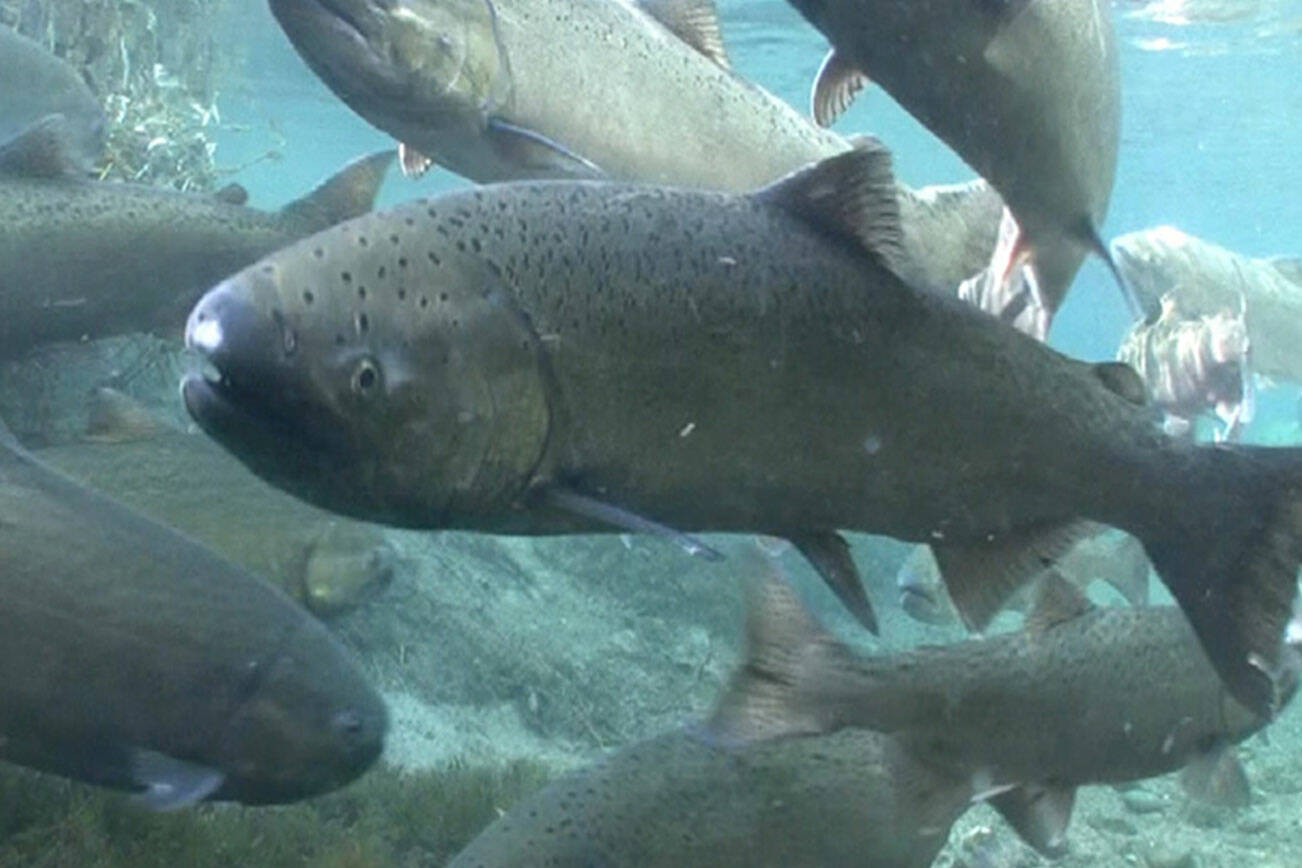Submitted by Wild Fish Conservancy
This week, new research was published in the Journal of Communications Earth & Environment sounding a grave warning for endangered Southern Resident killer whales (SRKW) and highlighting urgent conservation measures necessary to stem their pending extinction. While projecting rapid population collapse in roughly 40 years’ time from maintenance of the status-quo, the authors also shine light on a hopeful path forward to recovery. The publication suggests curtailing ocean-based salmon fisheries in the North Pacific—or transitioning these fisheries toward river-based locations—can immediately increase critical wild Chinook salmon prey for SRKW and prevent the extinction of the Pacific Northwest’s imperiled keystone species.
For decades, biologists have understood the factors causing the decline of the Southern Residents. Overwhelmingly, the most critical factor affecting SRKW is the reduced abundance and body size of Chinook salmon—the whale’s primary food resource. The Southern Residents are obligate prey specialists on the oldest, largest, and fattiest Chinook, which limits their ability to adapt to a changing environment.
Despite our understanding of the science, conservation actions to stem SRKW decline have been insufficient, and politicians and resource managers have fundamentally avoided addressing the role of harvest in depleting the abundance and quality of the whale’s primary food source. For example, the National Oceanic and Atmospheric Administration (NOAA) has openly acknowledged that status-quo management of Chinook ocean fisheries deprives SRKW of the marine prey they require for survival. As a result, the Northwest’s beloved whales are malnourished and declining rapidly toward extinction in plain sight.
“I assumed if only we had the right data, we would make the right decisions. But … not only do we know their biology and the threats they face, we have known these things for a very long time,” said lead author Dr. Rob Williams in a recent Seattle Times article.
While projecting accelerated extinction risks for SRKW from maintenance of status-quo fisheries and conservation actions, the new publication shines light on hopeful solutions, demonstrating that policy actions to reform Chinook salmon harvesting in ocean fisheries can immediately halt the decline of SRKW, the first step toward recovering the population.
“Increased abundance and quality of prey within SRKW critical habitat can be realized by changing fishing practices,” said the authors. “Moving Pacific Salmon Treaty fisheries in Alaska and BC away from Chinook salmon rearing grounds and migration routes into terminal river and estuarine locations results in an immediate increase of Chinook salmon in critical habitat of up to 25%.” Based upon the modeling results, the authors predict this increase in marine prey availability would be more than sufficient in preventing decline toward functional extinction.
If further efforts are made to transition away from ocean fisheries toward the use of selective, in-river harvesting practices, the paper describes additional opportunities to recover the age and size-structure of Chinook salmon populations. “By not harvesting immature fish in marine fisheries, and then allowing large [Chinook] females to pass through terminal fisheries to spawning grounds, a [Chinook] size increase up to 40% can occur over a 50-year period,” said the authors. This would provide immediate benefits for both wild Chinook and orca recovery and improve the quality of SRKW marine prey into the future to benefit their long-term recovery.



